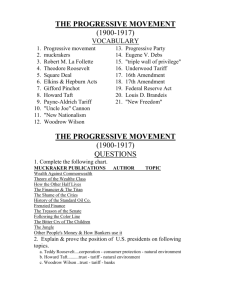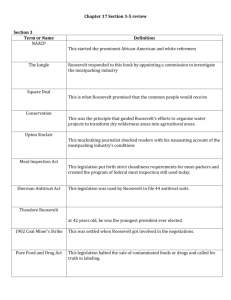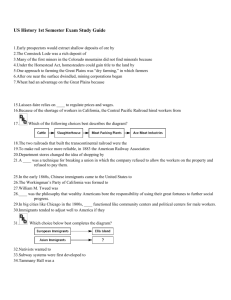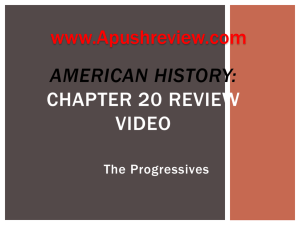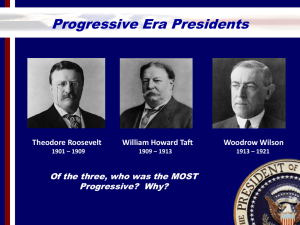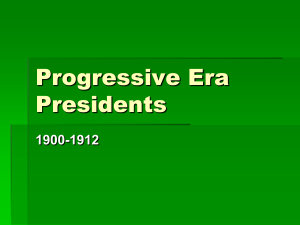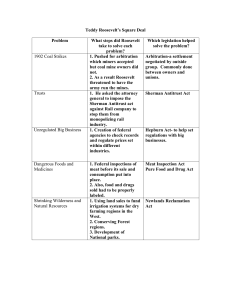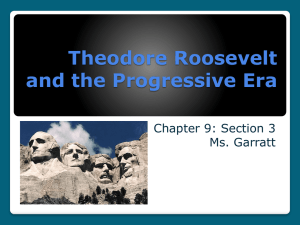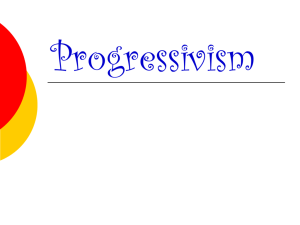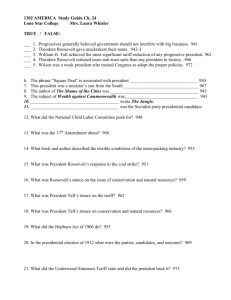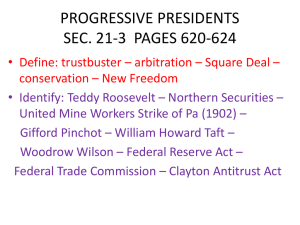Reading Quiz 2 - Jessamine County Schools
advertisement
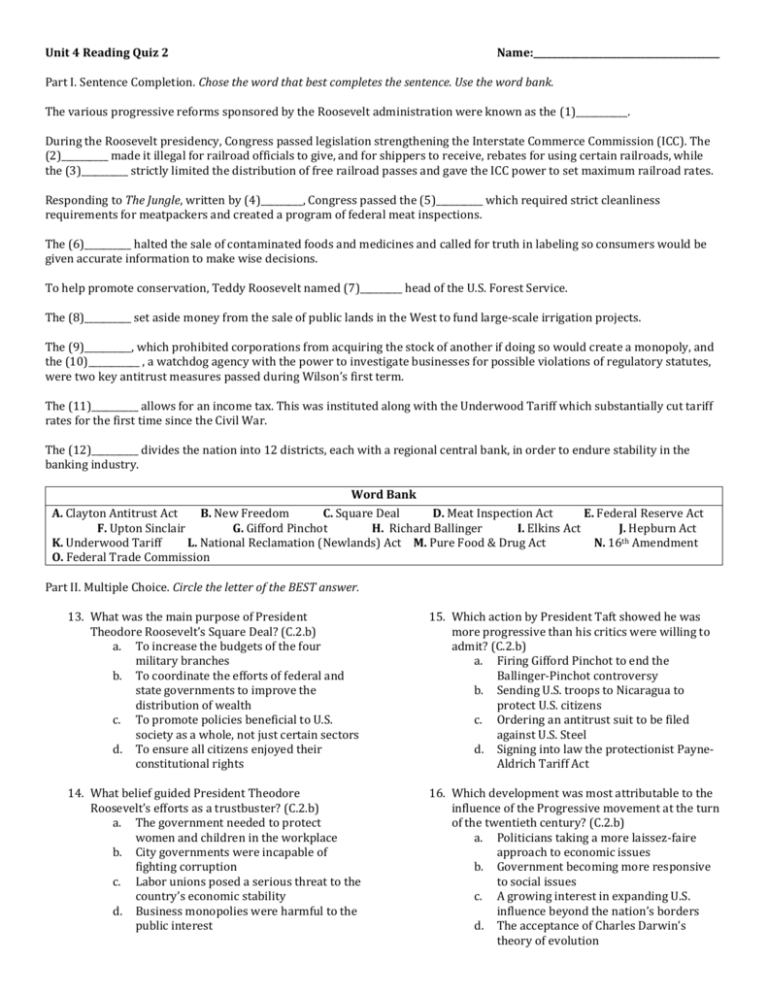
Unit 4 Reading Quiz 2 Name:________________________________________ Part I. Sentence Completion. Chose the word that best completes the sentence. Use the word bank. The various progressive reforms sponsored by the Roosevelt administration were known as the (1)___________. During the Roosevelt presidency, Congress passed legislation strengthening the Interstate Commerce Commission (ICC). The (2)__________ made it illegal for railroad officials to give, and for shippers to receive, rebates for using certain railroads, while the (3)__________ strictly limited the distribution of free railroad passes and gave the ICC power to set maximum railroad rates. Responding to The Jungle, written by (4)_________, Congress passed the (5)__________ which required strict cleanliness requirements for meatpackers and created a program of federal meat inspections. The (6)__________ halted the sale of contaminated foods and medicines and called for truth in labeling so consumers would be given accurate information to make wise decisions. To help promote conservation, Teddy Roosevelt named (7)_________ head of the U.S. Forest Service. The (8)__________ set aside money from the sale of public lands in the West to fund large-scale irrigation projects. The (9)__________, which prohibited corporations from acquiring the stock of another if doing so would create a monopoly, and the (10)___________ , a watchdog agency with the power to investigate businesses for possible violations of regulatory statutes, were two key antitrust measures passed during Wilson’s first term. The (11)__________ allows for an income tax. This was instituted along with the Underwood Tariff which substantially cut tariff rates for the first time since the Civil War. The (12)__________ divides the nation into 12 districts, each with a regional central bank, in order to endure stability in the banking industry. Word Bank A. Clayton Antitrust Act B. New Freedom C. Square Deal D. Meat Inspection Act E. Federal Reserve Act F. Upton Sinclair G. Gifford Pinchot H. Richard Ballinger I. Elkins Act J. Hepburn Act K. Underwood Tariff L. National Reclamation (Newlands) Act M. Pure Food & Drug Act N. 16th Amendment O. Federal Trade Commission Part II. Multiple Choice. Circle the letter of the BEST answer. 13. What was the main purpose of President Theodore Roosevelt’s Square Deal? (C.2.b) a. To increase the budgets of the four military branches b. To coordinate the efforts of federal and state governments to improve the distribution of wealth c. To promote policies beneficial to U.S. society as a whole, not just certain sectors d. To ensure all citizens enjoyed their constitutional rights 15. Which action by President Taft showed he was more progressive than his critics were willing to admit? (C.2.b) a. Firing Gifford Pinchot to end the Ballinger-Pinchot controversy b. Sending U.S. troops to Nicaragua to protect U.S. citizens c. Ordering an antitrust suit to be filed against U.S. Steel d. Signing into law the protectionist PayneAldrich Tariff Act 14. What belief guided President Theodore Roosevelt’s efforts as a trustbuster? (C.2.b) a. The government needed to protect women and children in the workplace b. City governments were incapable of fighting corruption c. Labor unions posed a serious threat to the country’s economic stability d. Business monopolies were harmful to the public interest 16. Which development was most attributable to the influence of the Progressive movement at the turn of the twentieth century? (C.2.b) a. Politicians taking a more laissez-faire approach to economic issues b. Government becoming more responsive to social issues c. A growing interest in expanding U.S. influence beyond the nation’s borders d. The acceptance of Charles Darwin’s theory of evolution 17. Which of the following is NOT an example of an issue that contributed to a split in the Republican Party during the Taft administration? (C.2.b) a. The Payne-Aldrich Tariff retained high rates on imports, rather than reduce tariffs b. Secretary of the Interior Richard Ballinger removed 1 million acres of forest and mining land from federal protection c. Taft ordered an antitrust lawsuit filed against U.S. Steel, and successfully busted 90 trusts in his four years in office. d. Taft supported political party boss, Joseph Cannon, as Speaker of the House 18. The purpose of the Interstate Commerce Act (1887), the Sherman Antitrust Act (1890), and the Clayton Antitrust Act (1914) was to ______. (C.2.b) a. eliminate unfair business practices b. reduce imports from foreign nations c. reduce the power of the unions d. increase the power of local governments 19. A progressive income tax is based on what idea? (C.2.b) a. taxpayers with larger incomes should be taxed at a higher rate b. all taxpayers should be taxed equal amounts of money c. all income should be taxed at the same rate d. taxation should be used to encourage social programs 20. President Woodrow Wilson supported creation of the Federal Reserve System in 1913 to_____. (C.2.b) a. balance the federal budget b. regulate the amount of money in circulation c. serve as a source of loans for farmers d. solve the financial problems of the Great Depression
